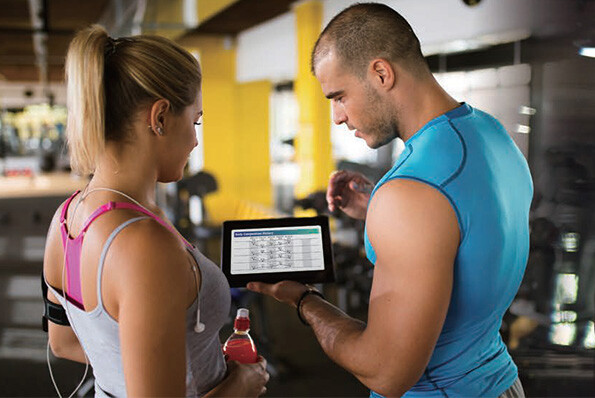Charder Electronic Co, Ltd. (Taiwan) - Professional Bioelectrical Impedance Analysis (BIA) devices are fast, inexpensive, and reliable tools for measuring and tracking crucial body composition results, such as body water, fat, muscle, and cellular health. Like any precision medical-grade instrument, they need to be used correctly in order to produce trustworthy results!
Don't try to trick the device!
Is it possible to "trick" a BIA device into calculating results that look "better" than they should be in reality? Of course! Think of a fitness center that holds a "fat burning contest", seeing which member lost the most body fat over a period of 6 weeks. A person might try to make their starting weight heavier than usual (by drinking a lot of water before measurement, or wearing heavy clothing during measurement), so it's easier for them to show a big change at the end, and win the contest!
If you wear a heavy coat during measurement, will the device think you have higher body fat? Possibly! BIA works by analyzing your age, weight, height, impedance, and other factors. If 2 people have the exact same impedance and other measured data, but one person is 5 kg heavier, the device might calculate the heavier person as having more body fat. Similarly, if you chug a gallon of water before measurement (please don't do this!), the device may very well interpret this additional weight as fat, as our bodies can't absorb water effectively in large quantities so quickly, so it doesn't affect your actual body composition.
What else can go wrong? After 6 weeks, the members return to the fitness center for a second measurement, to see who burned the most fat. A day before measurement, you decide to stop eating and drinking, so you'll weigh less, and maybe the machine will say you have less fat! Well, it's possible that this might happen, since weight is an important variable for calculation of body composition. However, if you're dehydrated, this may affect your impedance, and in fact increase the calculated body fat!
Basically, BIA devices are designed to be used in a certain way: you certainly can trick them to make yourself feel better, but at the end of the day, your actual results are what matter, and the best way to do that is to measure properly. Here are some important tips for how to do so!
(1) Do not exercise or perform strenuous physical tasks before measurement:
Because BIA analyzes electrical impedance in the body, activities that might affect impedance (e.g. sweating, dehydration, increased blood circulation) such as a heavy workout may cause measurement results to be temporarily less accurate..
(2) Do not eat and drink right before measurement:
Eating and drinking will increase body weight temporarily, and thus affect analysis results. For most accurate results, BIA measurements should be conducted in a fasting state (e.g. before breakfast) [1].
(3) Make sure the room isn't too cold or hot:
Extreme temperatures (both hot and cold) can result in temporary physiological changes (shivering and sweating are well-known examples). For best results, measurements should be conducted in "room temperature", between 24-28°C / 75-82°F.
(4) Remove shoes and socks before measurement:
Shoes and socks will interfere with the electric current, making measurement inaccurate or in some cases, impossible.
(5) Measure and input height accurately:
Inaccurate height input will affect estimation of body composition. Two people that both weigh 100kg may have very different body types if one is 150cm, and the other is 200cm! Because height is strongly correlated with arm and leg length, the device needs to know how tall you are in order to calculate results accurately.
We hope this helps you get the best BIA measurement results! Feel free to contact us if you have any questions!
[1] R Gallagher, M & Walker, Karen & O'Dea, K. The influence of a breakfast meal on the assessment of body composition using bioelectrical impedance. European journal of clinical nutrition. 52. 94-7. 10.1038/sj.ejcn.1600520., 1998.























Interested? Submit your enquiry using the form below:
Only available for registered users. Sign In to your account or register here.